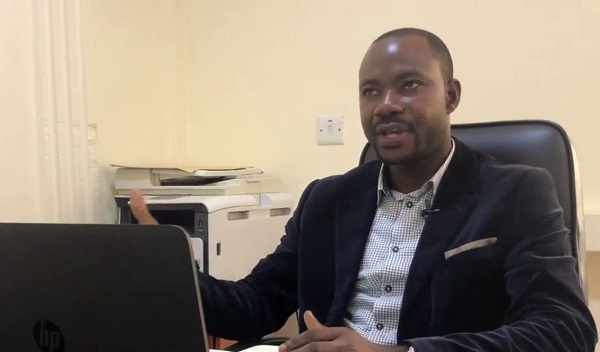Economist, Dr. Adu Owusu Sarkodie, is calling for a change in the structure of the economy if the country is to curb the perennial fall in the value of the cedi, beyond the prudent fiscal management of the economy.
According to him, government must stimulate exports and cut down on imports to enable the Central Bank have enough foreign exchange to meet dollar demands.
In its paper on “As long as the fundamentals of the economy are weak, the exchange rate will continue to expose it”, Dr. Owusu Sarkodie said the fundamentals of the economy are not strong.
“The Ghanaian economy has not transformed significantly enough to industrialise and add value to its exports. It is still an import-dependent economy. This is the major cause of the cedi depreciation since independence. The fundamentals have not improved significantly over the years”.
"This situation is still happening in recent times. Investors are selling the Ghana dollar-denominated domestic bonds and other international bonds. The government cannot borrow from the euro bond market because of downgrading by the international credit-rating agencies. The combined effect of this is that the Bank of Ghana doesn’t have enough foreign exchange to meet the rising demands for forex causing the recent depreciation of the cedi”, he explained.
Furthermore, Dr. Owusu Sarkodie said the long-term and everlasting solution is to export more and cut down imports so that the Central Bank can have enough foreign exchange at its disposal to meet demands, adding “as it has been the tradition for most governments, though not advisable, the short to medium-term measures is for the government to borrow from the international capital market, issue dollar-denominated domestic bonds, and deplete the international reserves.”
“Government can only have access to the Eurobond market after they have demonstrated to the investment community their ability to mobilize domestic revenue to service debt. As a matter of urgency, government will then have to pass the e-levy bill in the shortest possible time to access Eurobond. That is why almost everything seems to be linked to the proposed tax on electronic transactions (E-Levy) and why the government is so obsessed with its passage”, he noted.
In addition to E-Levy, he said the government can also demonstrate its ability to mobilise domestic revenue by paying attention to other sources of revenue such as property tax, tax exemptions, and natural resources.
Latest Stories
-
PassionAir assures passengers after Kumasi–Accra flight encounters turbulence
36 minutes -
Fatherhood Beyond Finances: Two drivers inspire a rethink on presence, bonding and recognition
51 minutes -
President Mahama urges protection of fuel price gains amid Middle East tensions
1 hour -
Republic of Rogues: Where Thieves Have Heads and the System Has None
2 hours -
Musah Mohammed donates jerseys and footballs to youth teams in Nkawkaw
3 hours -
Omane Boamah urges youth to persevere, recounts dramatic admission struggle at POJOSS
3 hours -
Minority unhappy over suspension of fuel levy, demands full repeal
3 hours -
Helicopter carrying Hindu pilgrims crashes in India, killing seven people
3 hours -
Council of State member urges Ghana to localise global solutions for youth employment
3 hours -
CAS overturns FIFA ruling and awards Right to Dream development fees from Ernest Nuamah’s transfer
4 hours -
Hitz Praise Zone: Nii Noi launches new gospel show on Hitz FM
4 hours -
BOAD reaffirms commitment to energy transition and sustainable agriculture in West Africa
5 hours -
10 kinds of women who have denied men the joy of fatherhood
6 hours -
A father’s hurdles caring for son with Sickle Cell disease – John Dzido shares a fraction
6 hours -
GF Awards 2025: Thomas Partey wins Player of the Year for the third time
6 hours

